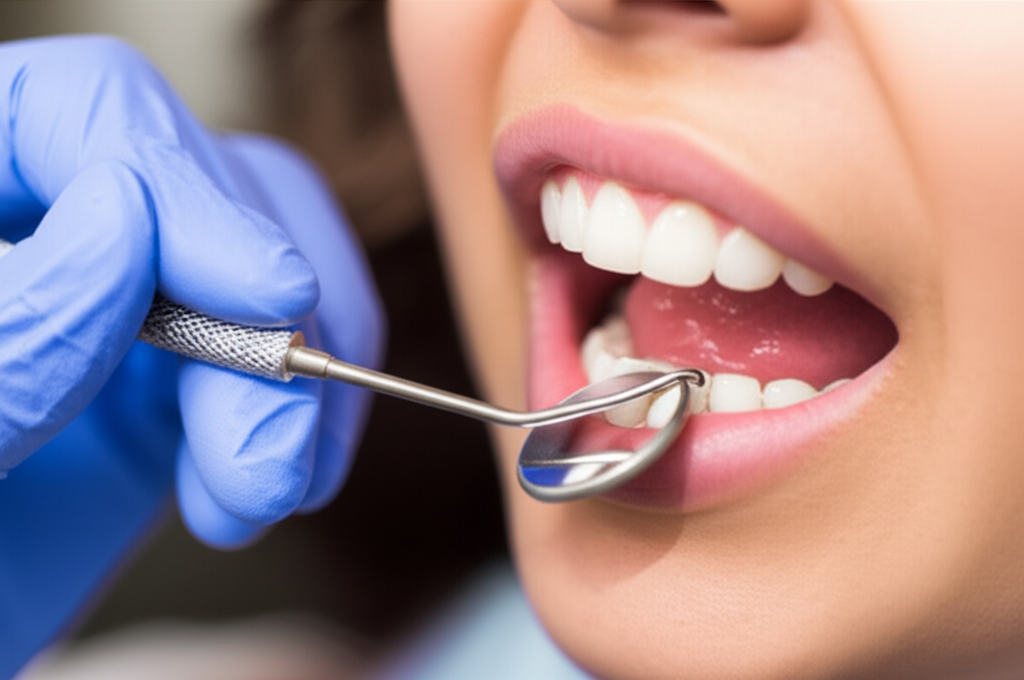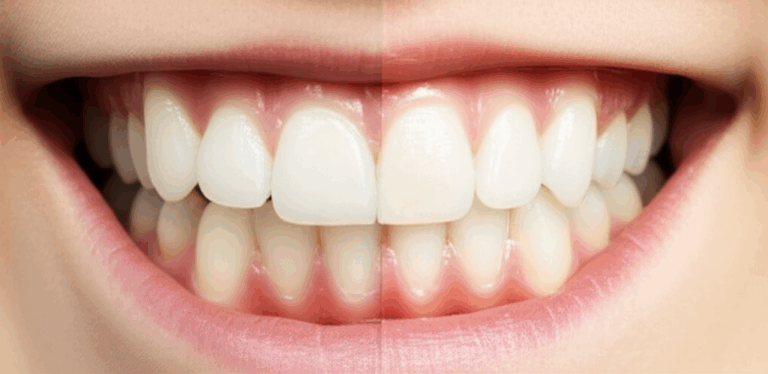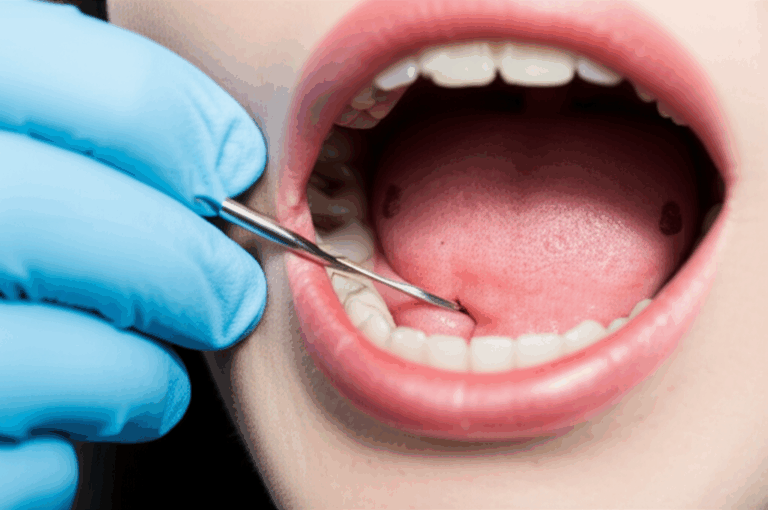
Why Dentists Scrape Your Teeth: The Essential Guide to Professional Cleanings
That Scraping Sound: What’s Actually Happening at the Dentist?
Let’s be honest—few things are as memorable as the first time you hear your dentist scraping your teeth. Maybe you felt a shiver or wondered if all that scraping was really needed. You’re not alone if you’ve ever sat in the chair thinking, “Why does the dentist do this?” Is it just something they always do, or does it really help your teeth stay healthy? These are good questions. Knowing what happens during a dental cleaning—and why it’s important—can help you feel sure and maybe even take charge during your next visit.
In This Article
- What Is Dentist “Scraping” and Why Does It Happen?
- Plaque, Tartar, and Why They Matter
- The Real Reasons Scraping Is Important for Your Health
- What Happens During a Professional Cleaning?
- Does Tooth Scraping Hurt? What Sensations to Expect
- The Difference Between Regular and Deep Cleaning
- Healthy Habits Beyond the Dentist’s Chair
- Your Takeaway: Prevent Problems Before They Start
What Is Dentist “Scraping” and Why Does It Happen?
Here’s how it goes: you’re sitting in the dental chair, mouth open, and you feel your dentist or hygienist using a small metal tool to scrape your teeth. This process is called dental scaling—think of it like a deep clean for your mouth. It isn’t just for show, and it’s not some old habit. That scraping sound means your dental team is removing stuff brushing and flossing just can’t.
Dental scraping gets rid of plaque and tartar—tough, sticky, or hard things that cause tooth decay, gum problems, and even bad breath. Your toothbrush is fine for daily cleaning, but some buildup gets too tough for you to take care of at home. That’s where the steady hand of your dentist or dental hygienist comes in, using tools and tricks that get your mouth really clean.
Plaque, Tartar, and Why They Matter
What Is Plaque?
Let’s go back to basics. Plaque is a soft, clear, and sticky film made of bacteria, food bits, and spit that covers your teeth through the day. If you’ve ever run your tongue over your teeth at night and they feel “fuzzy,” that’s plaque.
These bacteria love sugars and carbs in your food. In return, they make acids that attack your teeth and gums. Leave plaque alone and it starts causing trouble—tooth decay and gingivitis are the most common results.
What Is Tartar (Calculus)?
But plaque doesn’t just go away. If you miss brushing or leave some spots out, that fuzzy film gets hard. In just 1 to 3 days, it turns into a rough, rock-like crust called tartar (or calculus). Tartar is just plaque that got harder—and it’s a problem:
- It won’t come off with brushing or flossing. Once tartar is there, your toothbrush can’t fight it.
- It collects even more plaque. Tartar is rough, so more bacteria and stuff can stick and grow.
- It annoys your gums. Tartar builds up around the gums, making them red, puffy, and easy to bleed. After a while, this can lead to gum disease (gingivitis, periodontitis), and even losing teeth.
So if plaque is the sticky note you forgot to peel off, tartar is the cement you can’t wash away.
The Real Reasons Scraping Is Important for Your Health
It’s easy to think, “I brush and floss. Why worry about a little buildup?” But professional scaling isn’t just about shiny teeth—it’s about keeping your mouth and whole body healthy. Let’s look at why your dentist’s scrapers really help you.
1. Only Dentists Can Remove Tough Buildup
Tartar sticks tight to your teeth—like a barnacle on a boat. Even if you brush perfectly or use fancy toothpaste, once tartar forms, it won’t go away by itself. Dental scaling uses hand or power tools (like ultrasonic scalers with tiny shaking tips) to gently but firmly break up and clean away these stubborn spots.
2. Stopping Gum Disease: Gingivitis and Periodontitis
Not cleaning away plaque and tartar is the main reason people get gum problems.
- Gingivitis: This is when gums are sore, swollen, and bleed easily. The reason? Bacteria in plaque and tartar.
- Periodontitis: If gingivitis isn’t treated, it turns into periodontitis—a worse infection. Here, the gums pull away, bone might break down, and teeth can come loose or fall out.
Getting those nasty spots cleaned gets rid of what’s causing the irritation and stops gum disease. The CDC says almost half of adults over 30 in the U.S. have some periodontitis. The fix? Catch it early, keep it clean.
3. Protecting Against Tooth Decay and Cavities
Bacteria in plaque love sweets; they turn it into acid, which eats away at the outside of your teeth (enamel). That leads to cavities—tiny holes that get bigger if you don’t fix them.
Taking off plaque and tartar at the dentist lowers your risk. Some studies say regular cleanings from the dentist can cut down the risk of tooth decay by up to 60%.
4. Fighting Bad Breath
Ever notice how your mouth feels great after a cleaning? That’s because scraping gets rid of not only germs, but also old food bits and dead cells that make bad breath (halitosis). Think of it as a fresh start for your mouth.
5. Early Problem Spotting
Sometimes, when cleaning, your dentist finds problems you didn’t know about—early tooth decay, gum pulling back, or even the first signs of something serious like oral cancer. That’s another reason not to miss checkups.
6. Saving Time, Money, and Trouble Later
If you let dental problems go, they get worse. A quick cleaning today can stop bigger, more expensive treatments later, like root canals, tooth caps, or even tooth replacements at a dental ceramics lab.
What Happens During a Professional Cleaning?
If dental tools make you nervous, knowing what happens ahead of time helps. Here’s the simple step-by-step.
Tools Dentists Use
- Hand Scalers: These tools look like tiny hooks or curved sticks. Your hygienist uses them to gently pop off plaque and tartar—especially around the gums or between teeth.
- Ultrasonic Scalers: These are like little power washers. They use tiny shakes and cool water to break up tough tartar fast and smoothly.
- Polishing: After your teeth are clean, your hygienist may use a spinning brush and gritty paste to scrub away stains and make the surface smooth. That slippery, fresh feeling when your tongue slides over your teeth? That means you’re clean.
What Order Things Happen
How Long Does It Take?
Usually, a cleaning takes 30 to 60 minutes. If it’s been a while or there’s a lot of buildup, you might be there longer or need another visit for a deep cleaning.
Does Tooth Scraping Hurt? What Sensations to Expect
Let’s talk about what everyone worries about. Does scraping and picking hurt?
For most people, the answer is no—it’s more uncomfortable than painful. You might feel:
- Pressure when tartar pops off.
- Small “zaps” or sensitivity, especially if your gums are sore, your roots show, or your teeth are sensitive.
- A tickling or cold feeling from the water.
If you do feel pain, especially during a deeper cleaning, tell your dentist or hygienist! They can change how they work or even use a numbing gel to help you relax. Talking to your dentist helps a lot.
The Difference Between Regular and Deep Cleaning
Dental cleanings are usually of two types: the regular kind and the deep kind. Knowing what makes them different is helpful.
Regular Cleaning (Prophylaxis)
- What it is: Taking off plaque and tartar from above the gumline or just below it.
- Who needs it: Anyone with healthy gums or just a little gum problem.
- How often: Usually every six months (but your dentist might want you to come more if your risk is higher).
Deep Cleaning (Scaling and Root Planing)
- What it is: The cleaning goes deeper, removing tartar way beneath the gums and smoothing the roots of teeth, which helps your gums stick back on.
- Who needs it: Folks with signs of gum disease (deep pockets, bone loss, or gums bleeding a lot).
- What to expect: This may be done in sections, sometimes with numbing. You might feel a little sensitive or sore for a day or two.
Deep cleanings often come with advice about using the right brush or using a water flosser for hard-to-reach places.
Healthy Habits Beyond the Dentist’s Chair
The real trick to less scraping and a happy mouth? What you do at home matters most.
Smart Daily Mouth Care
- Brush two times a day: Use a soft toothbrush and fluoride toothpaste.
- Floss once daily: It gets food and plaque out from between teeth.
- Mouthwash: Helps fight bacteria too.
- Tongue scraping: Gets rid of smelly bacteria on your tongue.
Miss some spots? Interdental brushes are great—especially if you have braces or bridges.
Food and Habits
- Cut down on sugar and acidic drinks: Bacteria love sugar, acid wears out your teeth’s surface.
- Drink lots of water: Washes food and bacteria away.
- Don’t smoke: Smoking grows more tartar and hurts gums.
- Take care of health issues: Diabetes, a dry mouth, and some medicines can change your mouth health.
Keep Seeing Your Dentist
Even perfect brushing can’t take off tartar once it’s hard. So, see your dentist every six months, or as often as they tell you. It’s like a spa for your mouth—worth it for the fresh feeling and good health.
If you wear things like retainers or dentures, work with a removable denture lab to keep them clean and fitting well.
Your Takeaway: Prevent Problems Before They Start
To sum up the most important things about dental scraping:
- Scraping is for prevention, not punishment. It keeps away cavities, gum diseases, and bad breath.
- Plaque turns into tartar fast. Brush and floss every day, but remember you can’t take off tartar yourself.
- Professional cleaning saves your gums, teeth, and money by stopping problems before they get big.
- It’s fast and rarely hurts. Serious pain is not normal—let your dental team know if you need extra care.
- Don’t skip checkups. Even if your mouth feels fine now, you need to go.
Remember, a healthy smile isn’t just good to look at—it sets you up to be healthy all over. Cleanings stop big problems, lower infection, and keep your breath fresh.
FAQ: Dental Scraping Made Simple
Does scaling hurt my teeth or enamel?
No. When a trained dentist does it, scaling is safe and won’t hurt your enamel. The tools are made to take off only the bad stuff, not your tooth.
Can I get rid of tartar at home?
No. Once tartar forms, only a dentist has the right tools and skills to take it off safely.
Why do my gums bleed after scraping?
You might see some light bleeding if your gums are sore. Scraping actually helps this stop over time by removing what’s bothering your gums.
How can I make my cleanings easier?
Careful brushing, flossing, and skipping sugary snacks help stop tartar from forming—so there’s less for the dentist to take off next time. If you’re worried, talk to your dentist. They can numb you, relax you, or just go extra gentle.
Is it bad if I skip cleanings?
Skipping means more tartar, more germs, and higher risk for cavities, gum problems, and even losing teeth. It also means things like diabetes or heart disease could sneak by—since mouth health and body health are linked.
The Bottom Line: Trust the Process, Protect Your Smile
Dental scraping might not be your favorite sound. But it’s a sound you’ll come to value—because it means you’re taking care of your smile. Well-cared-for teeth help you eat, talk, and smile without worries.
Don’t wait for pain to see your dentist. Make professional cleanings a habit. Your teeth, gums, body, and even your wallet will thank you.
If you wear crowns, veneers, or dental implants, be sure your dentist uses quality labs. For more on dental work, see choices in a china dental lab.
Still got questions? Your dental team is ready to help—no judging, just advice. Take a step toward a healthy, clean, happy smile.
Medically reviewed by [Your Dental Clinic or Professional, if available]. For advice that fits you, schedule an appointment with your dentist.








